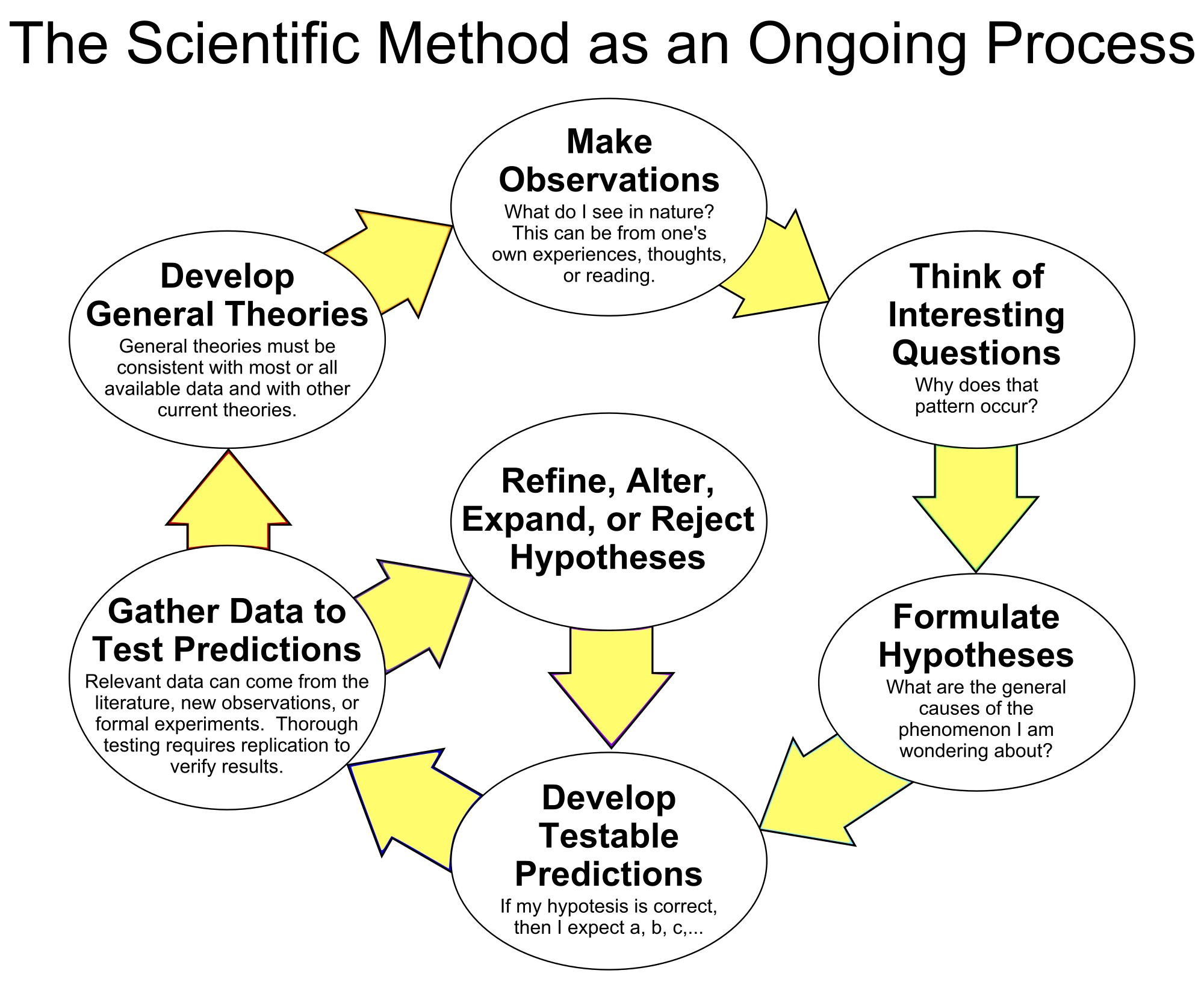Human and Natural Hazard Impacts: Home
ESU examples
Hypothesis
A hypothesis is an educated guess about how things work.
Most of the time a hypothesis is written like this: "If _____[I do this] _____, then _____[this]_____ will happen." (Fill in the blanks with the appropriate information from your own experiment.)
Your hypothesis should be something that you can actually test, what's called a testable hypothesis. In other words, you need to be able to measure both "what you do" and "what will happen."
After having thoroughly researched your question, you should have some educated guess about how things work. This educated guess about the answer to your question is called the hypothesis.
The hypothesis must be worded so that it can be tested in your experiment. Do this by expressing the hypothesis using your independent variable (the variable you change during your experiment) and your dependent variable (the variable you observe-changes in the dependent variable depend on changes in the independent variable). In fact, many hypotheses are stated exactly like this: "If a particular independent variable is changed, then there is also a change in a certain dependent variable."
Is the hypothesis based on information contained in the Research Paper? Yes / No
Does the hypothesis include the independent and dependent variables? Yes / No
Have you worded the hypothesis so that it can be tested in the experiment? Yes / No
BV LMC Link to PSMS Databases
Passwords
Passwords for home use are linked to this guide on the home page. Additionally, there are paper copies in the library. If you have difficulty with any passwords, please email or tell Mrs. Nocita. The document is password protected. The password hint is: What is another name for a group of leopards of an exceptionally large & fierce variety?
You can also visit the Kansas State Library site directly. They provide many (but not all) of our database resources. The links on this page work by verifying your Kansas internet provider address so you should not need passwords to use these resources.
Educational Level for All Scenarios
Middle School






